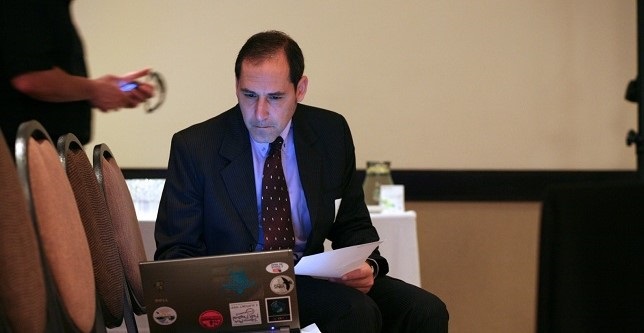Twenty years ago, I worked briefly at the National Oceanic and Atmospheric Administration for a programme that seemed hard to argue with – we distributed funds to help countries adapt to climate change.

Yet we faced some resistance, not just from climate change deniers but from some climate activists, as well. They felt that if people and governments came to believe we could comfortably adjust to global warming, we wouldn’t work to prevent it – that building resilience, in other words, could become a moral hazard.
In 2021, we face a similar situation regarding proposals around “geo-engineering,” or purposely changing the planet in ways that would at least temporarily counteract the effects of climate change. There is reluctance to even test these ideas, lest they be taken up as an alternative to reducing carbon emissions.
But we do need a global debate on geo-engineering, both because it could help ameliorate some of the effects of climate change, and because it is so risky. More reporting, and more shared understanding of these ideas, is particularly critical for those most affected by climate change, who will be left out of the decision-making around geo-engineering if we don’t act quickly.
Treating Symptoms, Treating Disease
The climate situation has become more dire. Even if countries meet their current commitments under the Paris Agreement, that would still likely lead to warming of well over 2 degrees Celsius, a level predicted to be catastrophic for human civilization. That’s why experts are calling on world leaders to set more ambitious targets for cutting carbon emissions, either at the virtual summit being hosted this month by President Biden or at the global climate summit scheduled for November.
Purposeful attempts at geo-engineering may therefore seem tempting to lessen some of the impacts of climate change we’re already seeing in the decline of vital ecosystems, climate-induced conflict and migration, and more extreme weather events.
One approach is to try to draw more carbon out of the atmosphere. But technological efforts to do this are so far too expensive. Planting a lot more trees could also help, but although global forest cover is increasing, it’s not happening at a scale that’s needed. And we are losing rainforests and other ecosystems that are most effective at storing carbon.
The other main geo-engineering approach is to block a small percentage of the solar radiation hitting the Earth, most feasibly by pumping lots of aerosols or other small particles into the atmosphere. The idea is to essentially mimic the effects of volcanic eruptions like that of Mount Pinatubo in June of 1991, which effectively reduced the average global temperature by about 0.6 degrees Celsius over the following 15 months or so.
While a compelling idea, it’s an approach that treats one of the main symptoms of the climate crisis rather than the proverbial disease. The effects would be short-lived – the atmospheric aerosols would have to be continually replenished – and it would not do anything to reduce the buildup of greenhouse gases in the atmosphere, or to treat some major impacts such as ocean acidification.
It’s also risky. Dampening solar radiation would probably reduce agricultural output in some regions, and could disrupt rainfall patterns. Most scary are the potential unknown impacts. The history of human intervention in the biosphere has not gone well.
Furthermore, how do we decide who can or should take such actions? It’s conceivable that governments acting alone, private companies, or even individuals may decide the impacts of climate change are so severe they have to take a geo-engineering approach to counteract them, or to carry it out as a de facto alternative to cutting fossil fuel consumption.
Given the risk of rogue, unilateral action, we need to have an open, global discussion about geo-engineering in the media and other public channels. We need to shine a bright light on these ideas by encouraging more reporting on them at every level.
For the past decade, my organisation has helped bring hundreds of journalists from countries that are highly affected by climate change — such as Bangladesh or Samoa — but because of their size or economic power, are largely left out of high-level negotiations on climate. At times, the journalists in our fellowship cohort at UNFCC COP deliberations have been the only media representatives of their countries present.
Ultimately, to get to a global agreement on when and if geo-engineering tactics are warranted, we need to involve those most affected – not only those with the power to take action. More science-informed reporting, worldwide, is one way to ensure more voices are heard.
Prevention vs Cure
If geo-engineering sounds like something out of science fiction, well, the one institution that seems to have no compunction publicly speculating about it is Hollywood. Geo-engineers seem to be the villain du jour, whether they try to achieve their goals by reducing the human population or reducing global temperatures, with disastrous results.
We do need to be wary. Some forms of carbon capture would seemingly have few opponents if they could become affordable and feasible. But most geo-engineering efforts come with considerable risk and are likely to be considered a last resort.
All the more reason to have a vigorous and public debate about it now. As we have found with efforts to inform people about adapting to climate change, there is another benefit to raising public awareness about geo-engineering: it can help make people realize that, whether talking about disease or climate change, an ounce of prevention is worth a pound of cure.
By James Fahn (Executive Director of Internews’ Earth Journalism Network, and the author of the book “A Land on Fire”)
